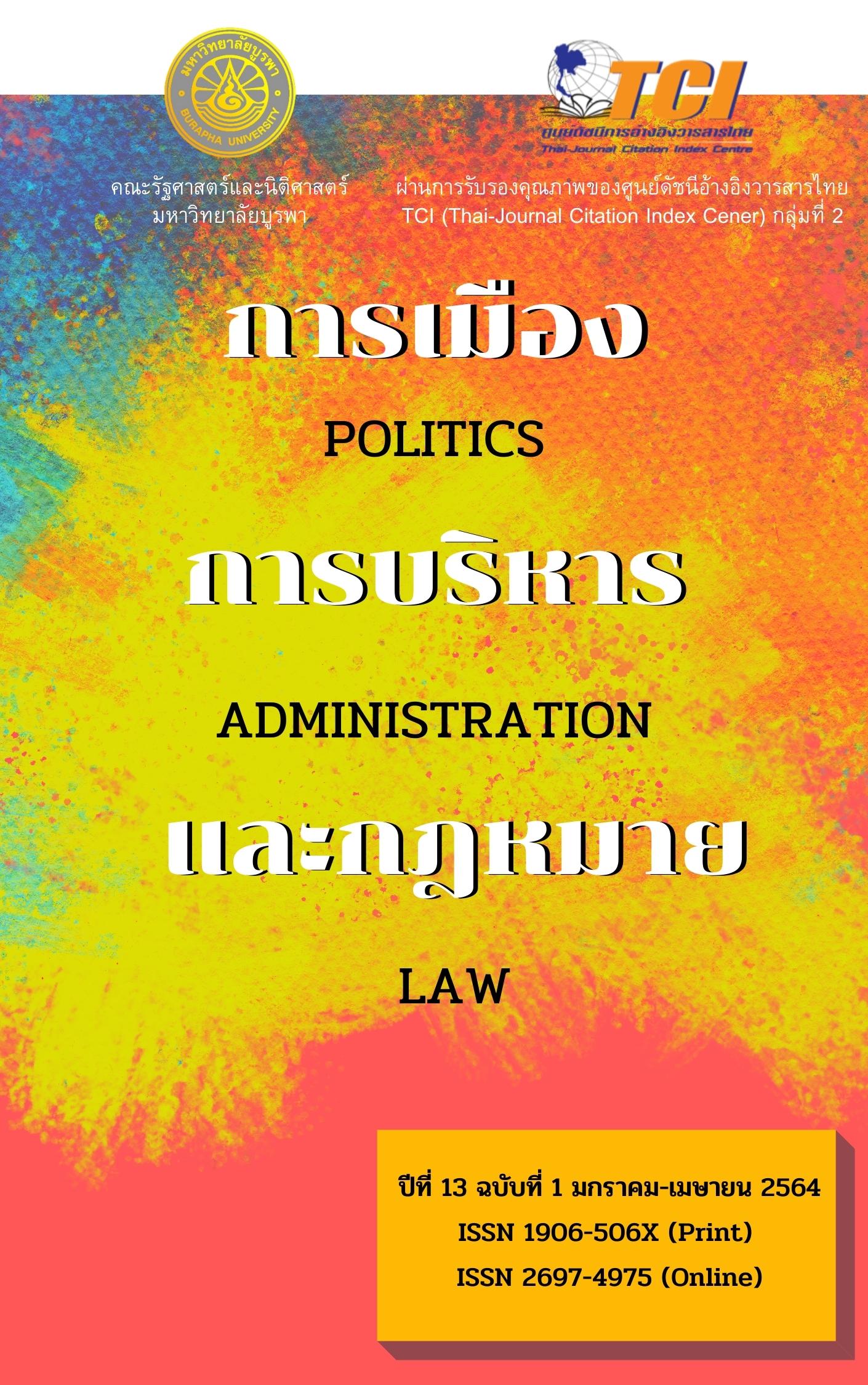Digital Skill Development of Thai Public Officials for Digital Government
Keywords:
Human Resource Development, Digital Skills, Thai Public Officials, Digital GovernmentAbstract
This research aims (1) to study the approach to develop the Thai Public officers’ digital technological skills, and (2) to study the limitation and the solution for the Thai Public officers’ digital technological skills. A qualitative methodology is used to collect data including documentary review, in-depth interview and observation. The sampling was conducted and divided into two groups; the first group is focused on the policy makers who are responsible for human resource development and the second group is focused on the officers who are responsible for the policy implementation and the performances management of the officers of the government agencies in accordance with the policy. Data was collected and analyzed by coding and categorical-content perspective of the typological analysis. The result showed that (1) the approach to develop the Thai Public officers’ digital technological skills has set the digital literacy and expected performance of the Thai Public officers in order to drive the Thai Government to be the Digital Government by relying on three approaches including In-Class Training, E-Learning and Restructuring the government agencies. (2) the limitation consist 2 issues, the first; the development guidelines are insufficient comparing to the amount of Thai Public officers all over the country. In addition, there are a few courses that focus on digital skills development. The second; it is short of the monitoring and the evaluation of the Thai Public officers who participating in the training. In this regard, government agencies responsible of the Thai Public officers’ digital technological skills development should be improved by providing continuous monitoring and evaluation of those trained. By using the “Four-Stage of HRD Evaluation” concept.
References
สำนักงานคณะกรรมการข้าราชการพลเรือน. (2561). กำลังคนภาครัฐ 2560: ข้าราชการพลเรือนสามัญ. นนทบุรี: 21 เซ็นจูรี่.
สำนักพัฒนาระบบจำแนกตำแหน่งและค่าตอบแทนและสำนักงานคณะกรรมการข้าราชการพลเรือน. (2561). กำลังคนในภาครัฐฝ่ายพลเรือน 2560. นนทบุรี: 21 เซ็นจูรี่.
Delahaye, B. L. (2005). Human Resource Management: Challenges and Future Directions. Brisbane: Johnbane.
Delahaye, B. L. (2005). Human Resource Development: Adult Learning and Knowledge Management. Milton: John Wiley & Sons Australia,Ltd.
Delahaye, B. L., & Smith, B. J. (1998). How to be an Effective Trainer. New York: Wiley.
Marcus, B. (2013). Digital literacy and e-skills: participation in the digital economy. Melbourne: Innovation & Business Skills Australia.
Hague, C., & Williamson, B. (2009). Digital Participation, Digital Literacy, and School Subjects: A Review of the Policies, Literature and Evidence. Bristol: Futurelab.
Fredericksen, D. E., Witt, S. L., Patton W. D., & Lovrich, N. P. (2016). Human Resource Management: The Public Service Perspective. Croydon: CPI Group (UK).
European Commission (E.C.). (2017). The Digital Economy & Society Index (DESI). Retrieved July 7, 2019, from https://ec.europa.eu/digital-single-market/en/news/digital-economy-and-society-index-desi-2017
Klein, H., & Kleinman, D. L. (2002). The Social Construction of Technology: Structural Considerations.Science, Technology, & Human Values, 27(1), 28-52.
Kirkpatrick, J. D. & Kirkpatrick, D. L. (2006). Evaluating training programs: the four levels. (3rd ed.). San Francisco Berrett-Koehler Publishers.
MediaSmarts. (2015). Digital Literacy Fundamentals. Retrieved July 8, 2019, from http://mediasmarts.ca/digital-media-literacy/general-information/digital-media-literacy-fundamentals/digital-literacy-fundamentals
Boczkowski, P. (2004). The Mutual Shaping of Technology and Society in Videotex Newspapers: Beyond the Diffusion and Social Shaping Perspectives. The Information Society: An International Journal, 20(4), 255-267.
Richard A. C., & Dan, R. D. (1993). Management Training and Development in a Nonprofit Organization. Public Personnel Management, 22(1), 37-42.
Weinberger, L. A. (1998). Commonly held theories of human resource development. Human Resource Development International, 1(1), 75-97.
Downloads
Published
Issue
Section
License

This work is licensed under a Creative Commons Attribution-NonCommercial-NoDerivatives 4.0 International License.






